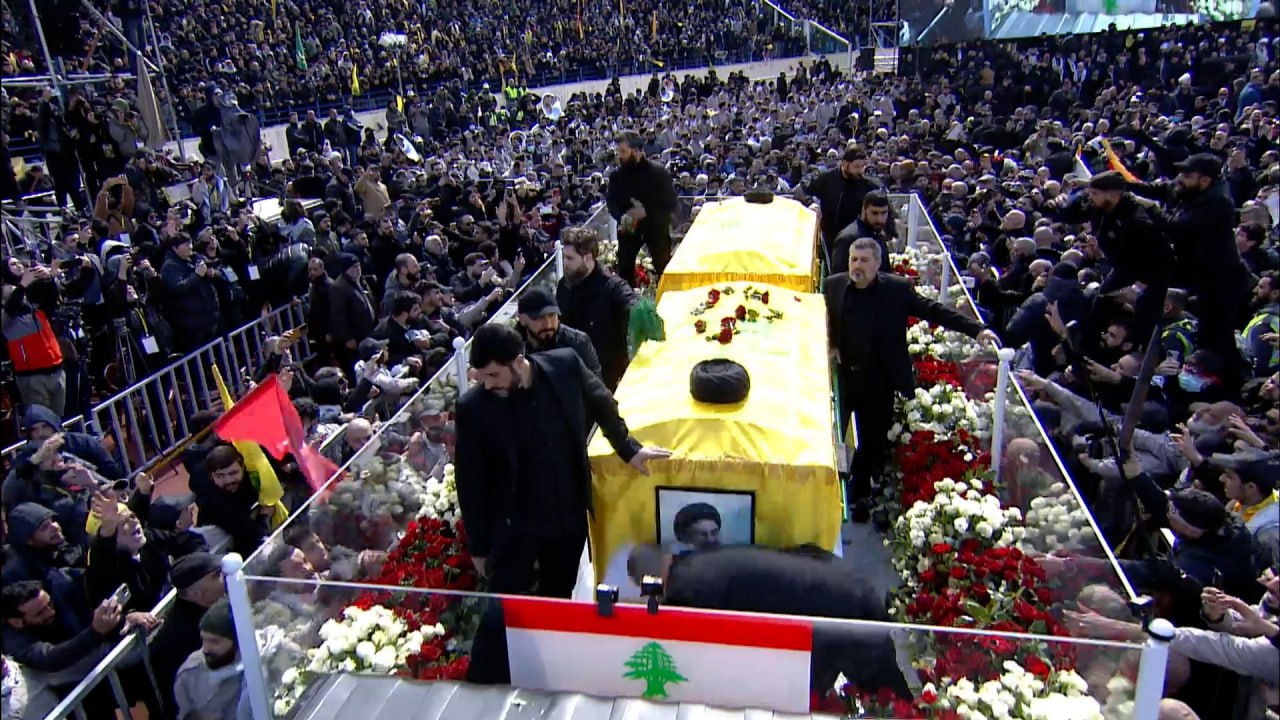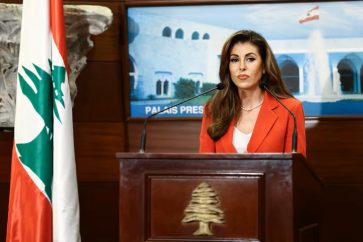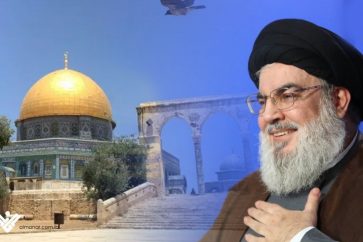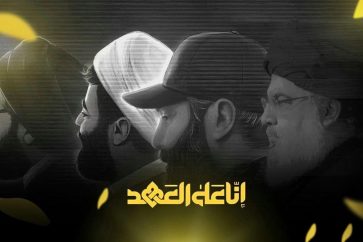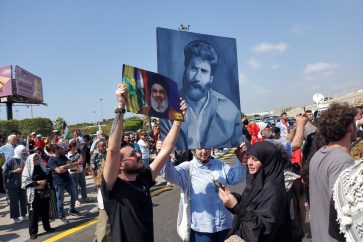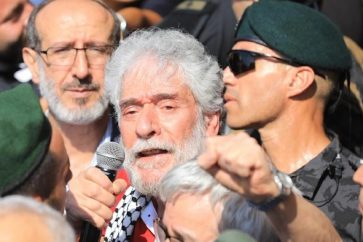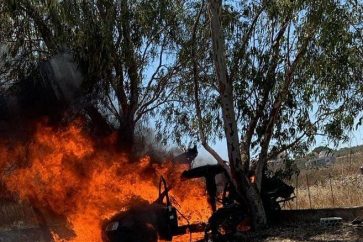“Today, we bid farewell to an exceptional, historic leader, a national, Arab, and Islamic figure who has become a symbol of freedom for oppressed people around the world,” Hezbollah Secretary-General Naim Qassem told the massive crowd. He added, “This gathering is an unparalleled expression of loyalty in Lebanon’s history.”
“Sayyed Hassan’s steadfast commitment to the resistance centered on Palestine and Jerusalem, and he played a pivotal role in revitalizing this cause, sacrificing his life on the front lines,” Qassem emphasized. “We will honor his legacy, continue on this path, and uphold his will—no matter the cost.”
The Hezbollah leader also stated that ‘Israel’ “can no longer sustain its occupation and aggression,” declaring that the resistance is “entering a new phase—one that requires new tools, strategies, and approaches.”
Sheikh Qassem underscored that the armed resistance remains strong, ever-ready, and firmly rooted in international law—its legitimacy unshakable by any foreign power. He insisted that Israel must withdraw from all occupied territories, affirming that the resistance is “written in blood, not ink on paper.”
Addressing the enemy, he declared, “Writhe in your anger. The resistance stands strong and unwavering.”
The event drew numerous political, diplomatic, and religious figures from Lebanon and beyond, reflecting broad international participation. Among the attendees were Lebanese officials, including Parliament Speaker Nabih Berri, as well as representatives of President Joseph Aoun and Prime Minister Nawaf Salam.
A high-profile Iranian delegation, led by Speaker Mohammad Qalibaf and Foreign Minister Abbas Araqchi, took part, along with a four-member team representing Iran’s Supreme Leader Sayyed Ali Khamenei. Iraqi and Yemeni delegations also played a prominent role, reaffirming their solidarity with Lebanon and its resistance.
Palestinian resistance factions participated to renew their commitment to the struggle against Israeli occupation. Additionally, revolutionaries and supporters from countries spanning from Indonesia to Venezuela attended, demonstrating global solidarity with Sayyed Hassan Nasrallah and the broader resistance movement.
The blessed coffins of the two Secretary-Generals carried on a hearse made it through the great crowd, relaying messages unspoken by Sheikh Naim. Messages from the souls of millions to their enemy, who arrogantly laid claim to the sky in same fighter jets that committed the heinous act of murdering the two great leaders and their comrades in the midst of a crowded residential area still bustling with the same people that then stood in the stadium to tell them thus: “We, without him, yet remain.”
The message given by the people is one echoed by the many sacrifices that several groups of them gave, groups who were honored in the great event.
First, without marking any sort of hierarchy, came the families of the thousands of martyrs that transcended to the beyond in this battle and all the battles that came before it. Their shoulders, adorned with sashes honoring their sacrifices glinted in the center of the stadium underneath the bright sun, signaling their acceptance of Allah’s great will and their readiness to continue giving all of what is most dear to them for this beautiful journey.
Second, the many wounded fighters and civilians who literally and figuratively sacrificed life and limb to be there in that moment. Many of whom had their eyesight, hands and fingers stolen by the treachery of the enemy during the pager and handheld radio attacks that injured and killed both civilian and soldier. They, with eyes and hands concealed behind bands emblazoned with the revolutionary mottos of Karbala and the great Imam, Imam Hussein (as), were there to say that they would fight even if the battle took each of their five senses away.
Abu Ali, the bodyguard of Sayyed Hassan Nasrallah, respects the artificial hand of a veteran.
When the veteran asks him to put his hand on the coffin for a spiritual blessing, he puts it on his head.
In the Shia religion, respect for martyrs and veterans is an important principle pic.twitter.com/qwBAKOU0Aa— Abshar Tasnim (@Abshar_Tasnim2) February 24, 2025
Third, the warriors who faced the enemy at every valley, mountain peak, fjord and ravine stomped their boots against the ground in defiance as they carried their dearly beloved leader for one final time to his resting place. In their unwavering stance, in their covered faces and stern brows, in the folds of their tempered bodies lies the message they carry to the enemy and the responsibility they inherit from the great Sayyed Hasan and his comrades who came before him, a message of immortal vigilance over the people they are entrusted with.
National, international, continental, heroic and self-sacrificial were the titles of the directives that littered the inside and outside of the stadium, messages from the masses and from individuals who dared not to miss those moments for the world. Moments which they all fought, struggled, traveled and patiently waited for, now a reality they all experienced together.
As the sun set over Beirut, the funeral of Sayyed Hassan Nasrallah and Sayyed Hashem Safieddine became more than a moment of mourning—it was a declaration of resilience, unity, and defiance. From Lebanon to the farthest reaches of the world, the presence of millions affirmed that the resistance is not tied to a single leader but is an undying force carried in the hearts of those who believe in its cause.
The chants, the vows, and the steadfast gazes of the attendees sent a resounding unified message: the struggle continues, the legacy endures, and the path carved in sacrifice will not be abandoned. In the face of adversity, the resistance stands unshaken, ready for the battles ahead, with the spirit of its fallen leaders guiding its every step.
Source: Al-Manar Webstite

